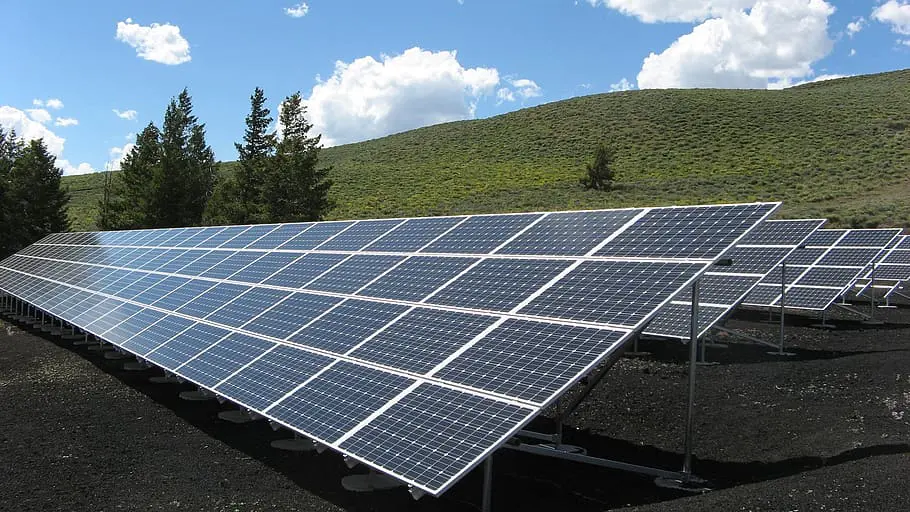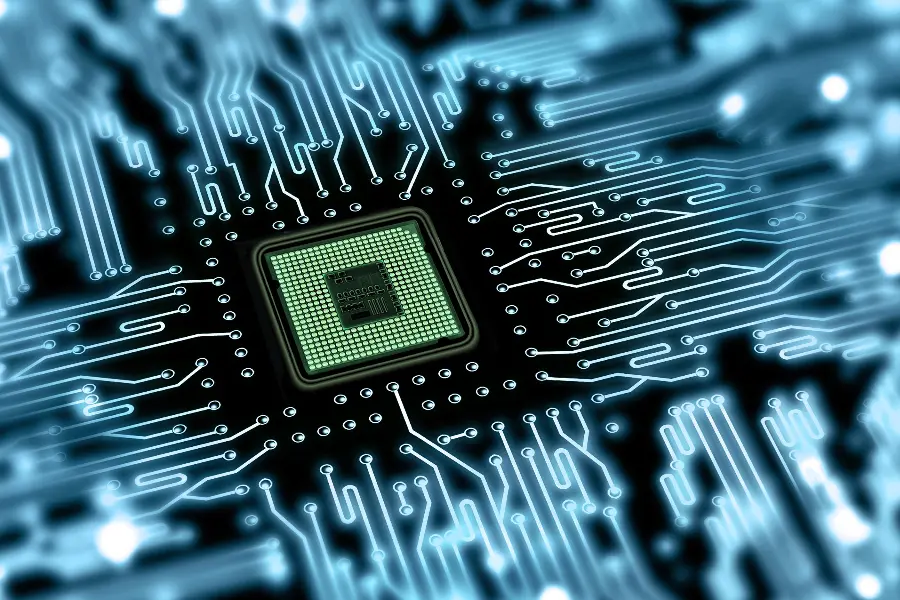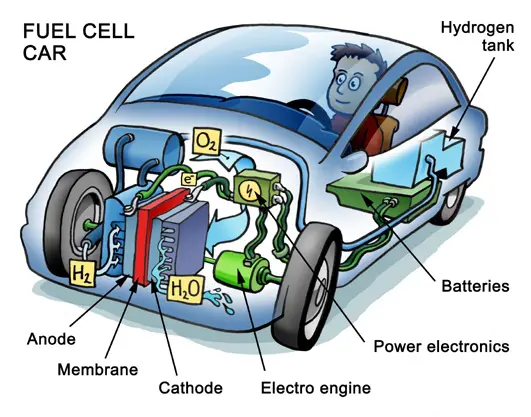 We are diving into hydrogen fuel cells pros and cons. Join us as we unpack the future of clean energy in a chat you won’t want to miss!
We are diving into hydrogen fuel cells pros and cons. Join us as we unpack the future of clean energy in a chat you won’t want to miss!
Ever found yourself wondering about hydrogen fuel cells and their pros and cons? Well, you’re in the right place!
Let’s embark on a journey together, exploring the ins and outs of this groundbreaking technology that’s reshaping our energy landscape.
Hydrogen Fuel Cells Pros and Cons
The pros and cons of hydrogen fuel cells are multifaceted. Pros include high energy efficiency, environmental benefits, and abundant fuel sources.
Cons encompass challenges in hydrogen extraction, storage concerns, and high initial costs.
Hydrogen fuel cells, often hailed as the future of renewable energy, are gaining traction worldwide.
With electric cars becoming more mainstream, the search for alternative fuels has intensified.
Hydrogen fuel cells, with their potential to power not just hydrogen cars but also electric motor-driven vehicles, present a promising solution.
Hydrogen is a clean fuel that, when consumed in a fuel cell, produces only water. Hydrogen can be produced from a variety of domestic resources, such as natural gas, nuclear power, biomass, and renewable power like solar and wind. These qualities make it an attractive fuel option for transportation and electricity generation applications. It can be used in cars, in houses, for portable power, and in many more applications.
https://www.energy.gov/eere/fuelcells/hydrogen-fuel-basics
Electric Cars vs. Hydrogen Cars:
While electric cars rely on battery power, hydrogen cars utilize hydrogen fuel cells to produce electricity, offering faster refueling times and longer ranges.
Alternative Fuel:
As the world seeks to reduce its use of fossil fuels, hydrogen emerges as a clean, efficient alternative fuel, with the potential to revolutionize the automotive industry.
What Are Hydrogen Fuel Cells?

Hydrogen fuel cells are not just a buzzword in the United States but are making waves globally.
These devices convert chemical energy from hydrogen gas into electrical energy, offering a green solution to the world’s energy needs.
Working Principle:
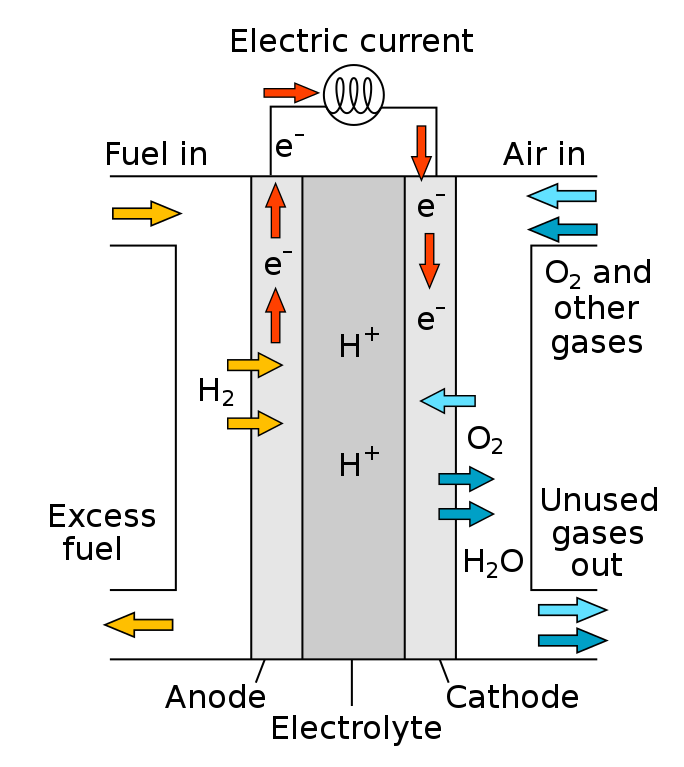
At their core, hydrogen fuel cells involve a chemical reaction where hydrogen and oxygen combine to produce water, releasing electrical energy in the process.
Infrastructure and Storage:
One of the challenges is the lack of infrastructure, especially hydrogen stations, and the need for high-pressure hydrogen tanks for storage.
However, advancements in technology are addressing these issues, with high-pressure tanks and cryogenic temperatures being explored for efficient storage.
Advantages of Hydrogen Fuel Cells
In the vast realm of renewable energy sources, hydrogen fuel cells stand out with unique benefits.
From their impressive energy density to their environmental advantages, they offer solutions to many of today’s energy challenges.
High Energy Density:
Hydrogen’s energy density surpasses many traditional power sources, making it a formidable contender in the energy arena, especially when compared to lithium-ion batteries.
Abundance of Hydrogen:
As the most abundant element in the universe, hydrogen presents an almost inexhaustible fuel source, especially when derived from renewable sources like wind energy and solar power.
Clean Energy Source:
Emitting only water vapor upon combustion, hydrogen fuel cells stand as a beacon for a clean energy future, combating the harmful emissions of greenhouse gases.
Efficiency:
With the capability to outperform internal combustion engines, hydrogen fuel cells offer a more efficient energy conversion, promising longer ranges and better energy utilization.
Environmental Benefits:
In the battle against global warming and climate change, hydrogen fuel cells offer a weapon to reduce harmful emissions and carbon footprints.
Rapid Charging and Long Usage Times:
Unlike battery-electric vehicles that require extended charging periods, hydrogen vehicles can refuel in mere minutes, offering unparalleled convenience.
Versatility and Potential Applications:
Beyond vehicles, hydrogen fuel cells can power remote areas, serve as backup energy sources, and even support large-scale power plants.
Potential for Decentralized Power Supply:
In regions with unstable grids, hydrogen fuel cells can offer a consistent and reliable power source, reducing reliance on centralized power infrastructures.
Disadvantages of Hydrogen Fuel Cells
Every silver lining has a cloud, and hydrogen fuel cells are no exception. While they promise a greener future, there are hurdles to overcome.
Challenges in Hydrogen Extraction:
Extracting pure hydrogen is energy-intensive. Current methods, often involving natural gas, can counteract some of the environmental benefits.
High Initial Investment:
The nascent stage of hydrogen fuel cell technology means high costs for research, development, and initial setup.
Storage and Infrastructure Concerns:
Storing hydrogen requires specialized infrastructure. The lack of widespread hydrogen stations also poses challenges for the general public and the automotive industry.
Flammability and Safety Concerns:
The highly flammable nature of hydrogen gas necessitates stringent safety measures, especially concerning storage and transportation.
Current Cost Implications:
The transition to a hydrogen-powered future requires significant investment.
From setting up hydrogen stations to the high costs of hydrogen-powered cars, the financial barriers are substantial.
Hydrogen Fuel Cells in Transportation
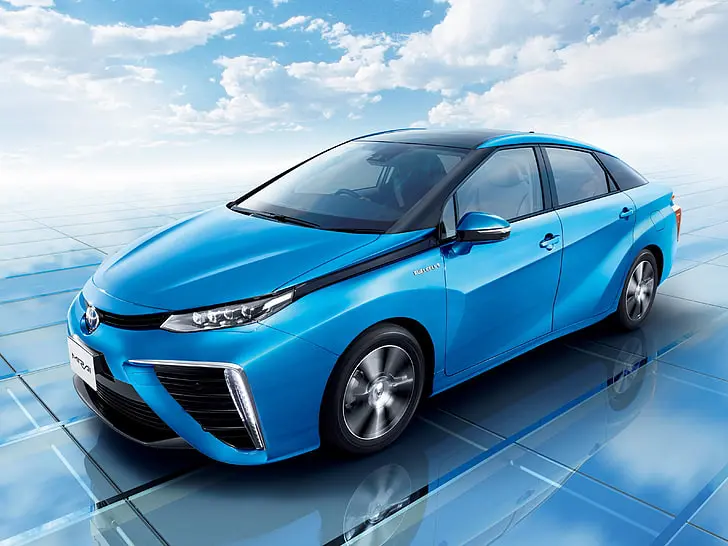
The transportation sector stands on the cusp of a revolution, with hydrogen fuel cells poised to play a pivotal role.
Envisioning roads dominated by hydrogen-powered vehicles, we delve into the transformative potential of hydrogen in this sector.
Hydrogen-Powered Personal Vehicles:
Brands like Toyota Mirai are pioneering the shift to hydrogen-powered cars, offering longer ranges and rapid refueling times.
Heavy-Duty Applications:
Hydrogen’s high energy density makes it ideal for heavy-duty applications, including trucks and buses, where weight and refueling times are critical.
Future Prospects:
With advancements in technology and infrastructure, the coming years promise a surge in hydrogen-powered transportation, from passenger cars to large commercial vehicles.
A Deeper Dive into Hydrogen Fuel Cells
History and Development of Hydrogen Fuel Cells
Hydrogen fuel cells were first conceptualized in the early 19th century. Over the decades, advancements in technology and materials have transformed them from laboratory curiosities to viable energy solutions.
A fuel cell is an electrochemical cell that converts the chemical energy of a fuel (often hydrogen) and an oxidizing agent (often oxygen[1]) into electricity through a pair of redox reactions.[2] Fuel cells are different from most batteries in requiring a continuous source of fuel and oxygen (usually from air) to sustain the chemical reaction, whereas in a battery the chemical energy usually comes from substances that are already present in the battery.[3] Fuel cells can produce electricity continuously for as long as fuel and oxygen are supplied. https://en.wikipedia.org/wiki/Fuel_cell
Types of Hydrogen Fuel Cells
There are several types of hydrogen fuel cells, including Proton Exchange Membrane Fuel Cells (PEMFC) known for their quick start-up times, and Solid Oxide Fuel Cells (SOFC) which operate at high temperatures and are suitable for stationary applications.
Applications Beyond Vehicles
Beyond vehicles, hydrogen fuel cells are used in backup power systems for hospitals and data centers, portable power for remote locations, and even in space exploration for providing electricity in spacecraft.
Challenges in Storage and Transportation
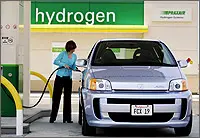 Hydrogen storage requires either high-pressure tanks or cryogenic temperatures, making it a challenge.
Hydrogen storage requires either high-pressure tanks or cryogenic temperatures, making it a challenge.
Transportation, on the other hand, demands a robust infrastructure, which is currently in its nascent stages.
Global Initiatives and Investments
Many countries, recognizing the potential of hydrogen fuel cells, are investing heavily in research, development, and infrastructure.
These initiatives aim to make hydrogen a cornerstone of future energy strategies.
Comparison with Other Renewable Energy Sources
While solar and wind power harness energy directly from natural sources, hydrogen fuel cells store and deliver energy, offering advantages in terms of portability and application versatility.
The Role of Policy and Regulation
Governments worldwide are formulating policies to promote hydrogen fuel cells, offering incentives for research and development, and setting up regulatory frameworks for safe production, storage, and transportation.
Public Perception and Acceptance
As awareness grows, the public is becoming more receptive to hydrogen fuel cells. However, widespread acceptance will hinge on infrastructure development and cost reductions.
Innovations on the Horizon
Research is ongoing to improve the efficiency, durability, and affordability of hydrogen fuel cells. Innovations in materials science and engineering promise to revolutionize the field in the coming years.
FAQs
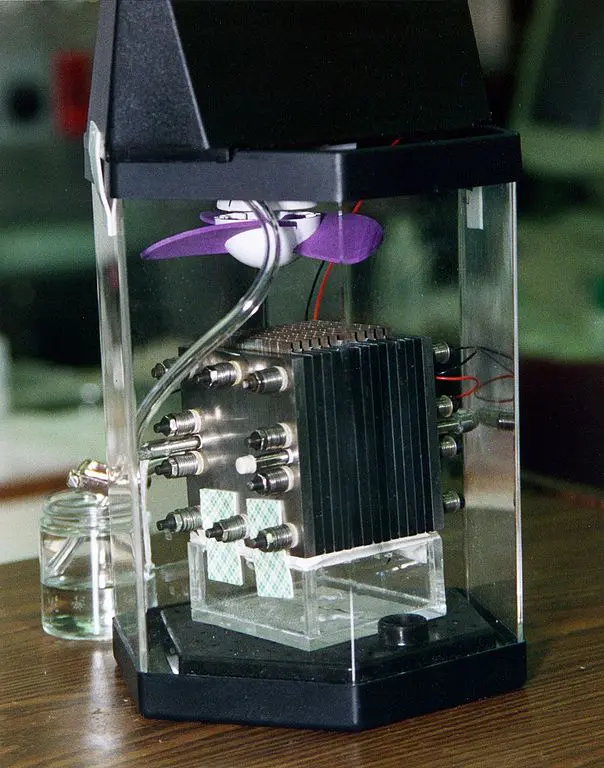
Got questions about hydrogen fuel cells? You’re not alone! As this technology gains traction, it’s natural to have a few queries. Dive into our FAQs to get the lowdown on everything you’ve been wondering about.
Q: How do hydrogen fuel cells work?
A: Hydrogen fuel cells are fascinating devices. They take chemical energy from hydrogen gas and transform it into electrical energy.
This magic happens through an electrochemical reaction. The best part? The only byproduct of this process is water vapor, making it an environmentally friendly energy source.
Q: Are hydrogen fuel cells safe?
A: Safety first, right? While it’s true that hydrogen is flammable, it’s all about how it’s handled.
With the right safety protocols, storage solutions, and handling measures, hydrogen fuel cells can be used safely and efficiently.
Q: How does the efficiency of hydrogen fuel cells compare to other energy sources?
A: When we talk about efficiency, hydrogen fuel cells pack a punch. They generally outperform traditional internal combustion engines.
And when compared to other renewable resources, they hold their ground, offering a level of efficiency that’s hard to beat.
Q: What are the environmental impacts of hydrogen fuel cells?
A: Mother Earth would be proud! When hydrogen is sourced from green methods, its fuel cells have a minimal environmental footprint.
Their emission? Just water vapor. This makes them a top choice for those looking to reduce harmful environmental impacts.
Q: How does the cost of hydrogen fuel cells compare to other renewable energy sources?
A: Money matters, and when it comes to hydrogen fuel cells, the initial investment can be a bit steep compared to some other renewable sources.
However, as technology advances and becomes more widespread, these costs are expected to decrease. Plus, the long-term benefits might just make it worth the investment.
Conclusion
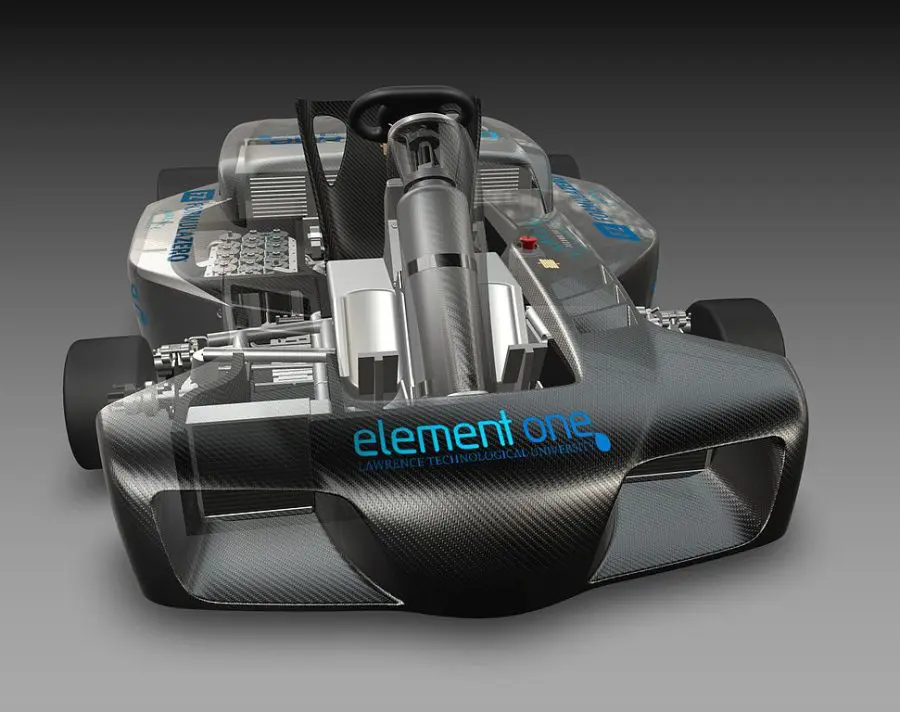
As the world grapples with climate change and the detrimental effects of greenhouse gas emissions, hydrogen fuel cells offer a beacon of hope.
Their potential extends beyond just being an energy source, presenting solutions to some of the most pressing environmental challenges of our time.
The Green Future:
With the U.S. Department of Energy and other global entities investing in research, green hydrogen, produced using renewable sources like solar energy and wind power, is set to play a pivotal role in reducing the world’s carbon footprint.
Challenges Ahead:
While the benefits are numerous, challenges like production process optimization, addressing the cons of hydrogen energy and ensuring safe hydrogen production without harmful gases remain.
However, with continued research and global collaboration, a hydrogen-powered future seems not just possible, but imminent.

